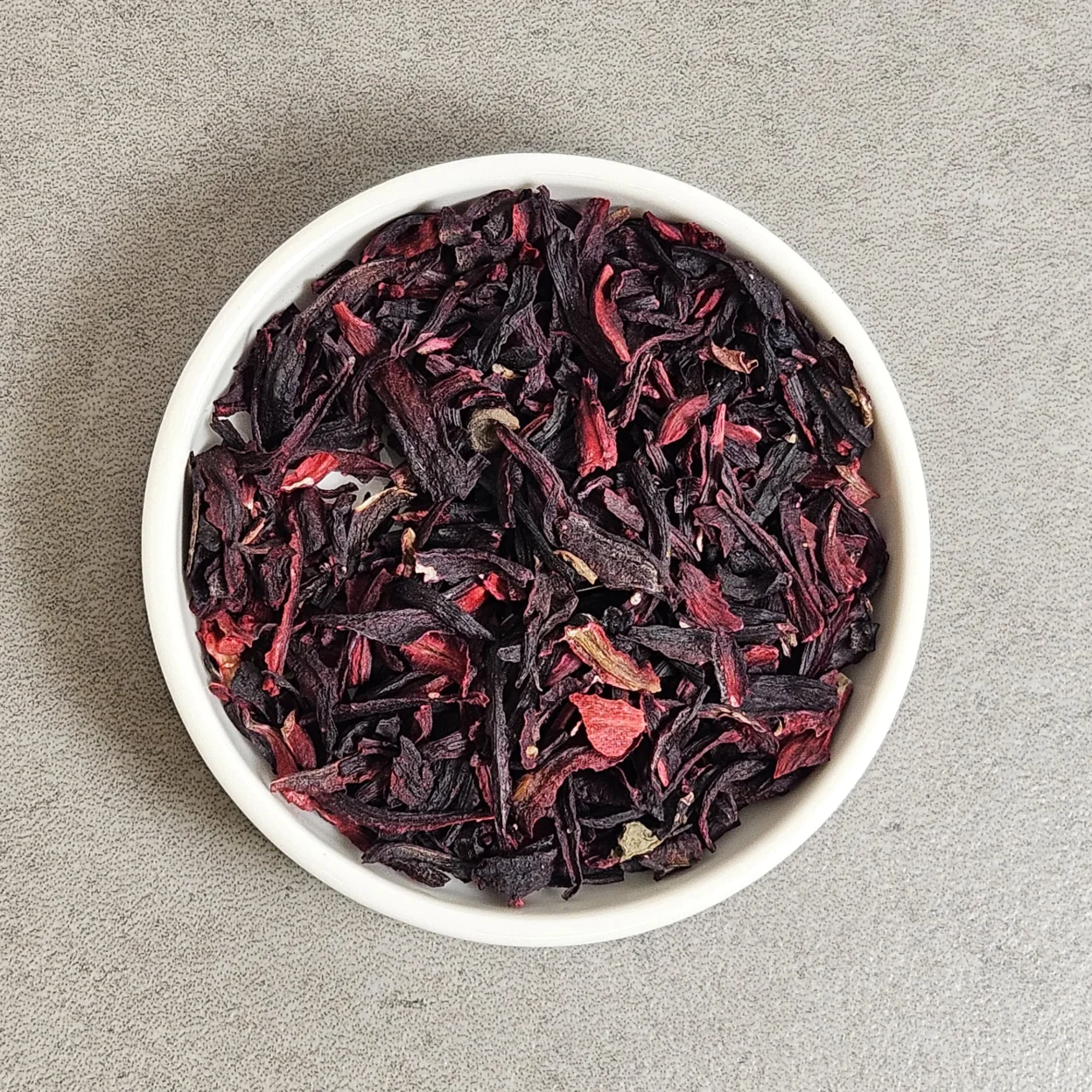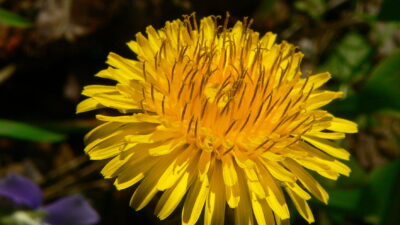Hibiscus is a well-known herbaceous plant celebrated for its vibrant red flowers and valuable therapeutic properties, long utilized in traditional medicine.
What is Hibiscus?
Hibiscus is a plant primarily cultivated in tropical and warm-temperate regions. Its dried flowers are commonly used to prepare traditional beverages and dishes. The plant is distinguished by its bright red color and refreshingly tangy taste.
Health Benefits of Hibiscus:
- Lowers Blood Pressure:
Hibiscus contains compounds that help reduce blood pressure, supporting heart and vascular health and lowering the risk of cardiovascular disease. - Improves Cholesterol Levels:
Research suggests hibiscus may help reduce levels of bad cholesterol (LDL), promoting artery health and preventing heart conditions. - Boosts the Immune System:
Thanks to its antioxidants like flavonoids and vitamin C, hibiscus strengthens the immune system and protects against diseases and infections. - Supports Digestive Health:
Hibiscus tea acts as a gentle laxative and aids digestion, relieving stomach discomfort and bloating. - Aids in Weight Loss:
By enhancing metabolism and helping regulate blood sugar levels, hibiscus is considered a helpful aid in healthy weight management.
How to Use Hibiscus
Hibiscus tea can be easily prepared by boiling dried flowers in hot water for 5–10 minutes, straining it, and adding sugar or honey to taste.
It can be served hot or cold and also used in juices and soft drinks.
Hot vs. Cold Hibiscus Tea:
Preparation Method:
- Hot hibiscus: Made by steeping dried hibiscus flowers in boiling water.
- Cold hibiscus: Made by soaking dried flowers in cold water and refrigerating for several hours or overnight.
Taste & Flavor:
- Hot hibiscus: Refreshingly tart with slightly sweet undertones.
- Cold hibiscus: Has a cooling, slightly less tangy flavor.
Health Benefits:
Both hot and cold versions offer the same benefits, such as heart support, blood pressure reduction, and antioxidant boost.
Usage:
- Hot hibiscus tea is preferred in colder seasons for warmth.
- Cold hibiscus tea is ideal in hot weather for hydration and refreshment.
Precautions and Warnings:
Low Blood Pressure Effects:
People with low blood pressure should avoid consuming large quantities of hibiscus, as it may cause a sudden drop in blood pressure.
Drug Interactions:
Hibiscus may interact with medications such as antihypertensives and diabetes drugs. It’s advisable to consult a doctor before regular consumption if taking medications.
Recommended Dosage:
- Typical dosage: Boil 2–3 teaspoons of dried hibiscus flowers in a cup of hot water for 5–10 minutes.
- Recommended intake: 2–3 cups daily.
Additional Benefits:
Reduces Inflammation:
Some studies suggest hibiscus may have anti-inflammatory properties that help alleviate bodily inflammation.
Rich in Antioxidants:
Hibiscus is high in antioxidants that combat free radicals and protect cellular health.
In Conclusion:
Hibiscus is a wonderful addition to a healthy lifestyle, combining delicious taste with significant health benefits.
By regularly enjoying hibiscus tea, you can support strong immunity, good digestion, and a healthy heart.
Still, it’s important to consult a physician before incorporating it into your routine, especially if you have certain health conditions or take specific medications.




